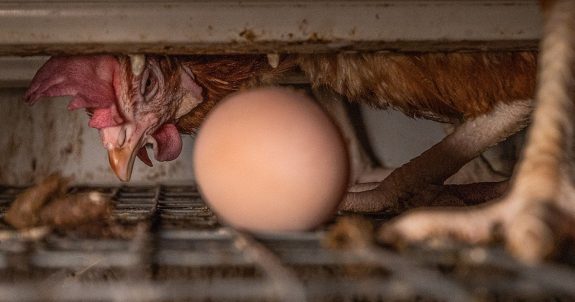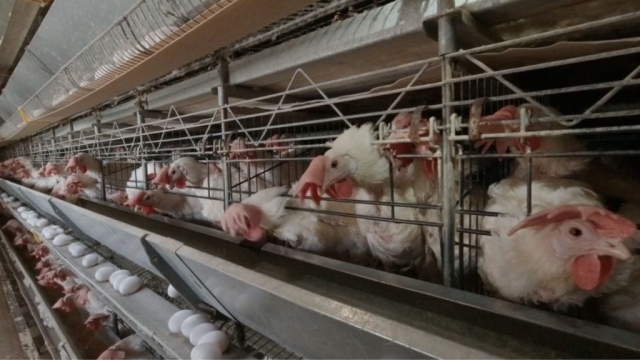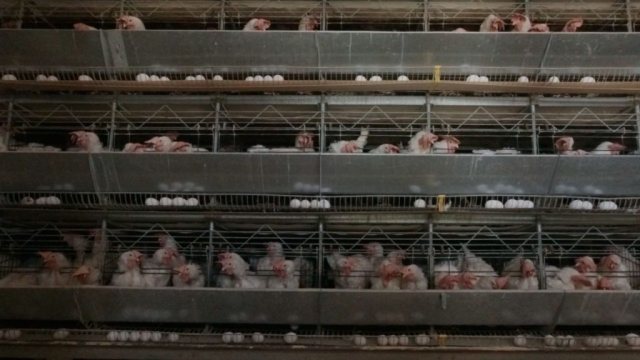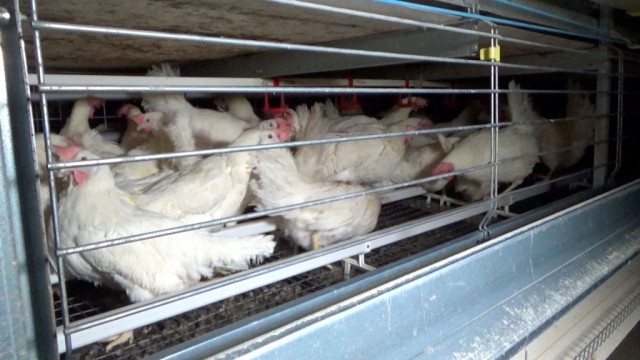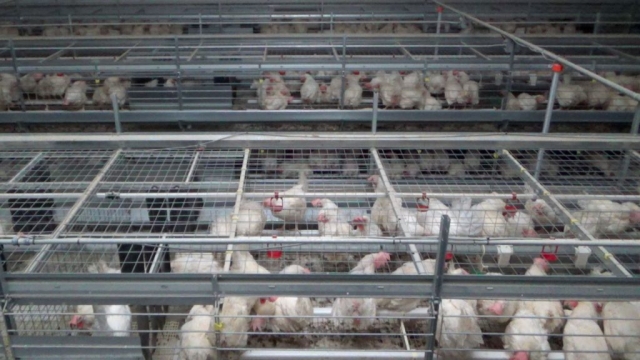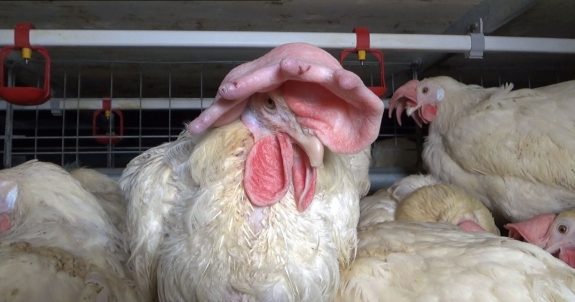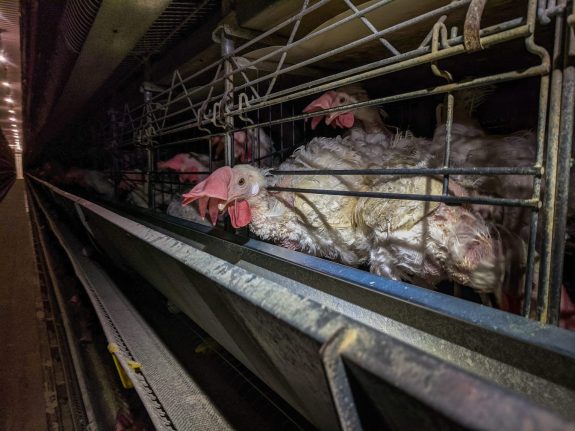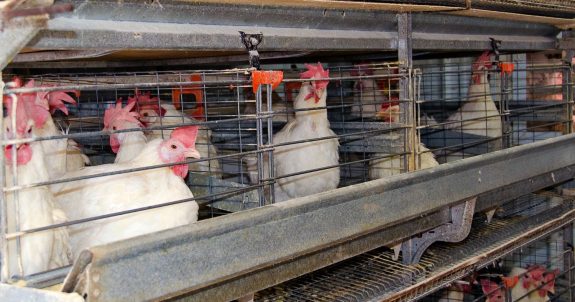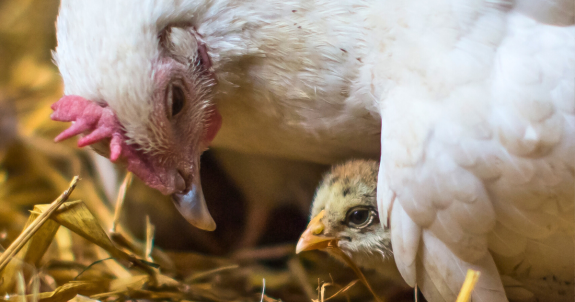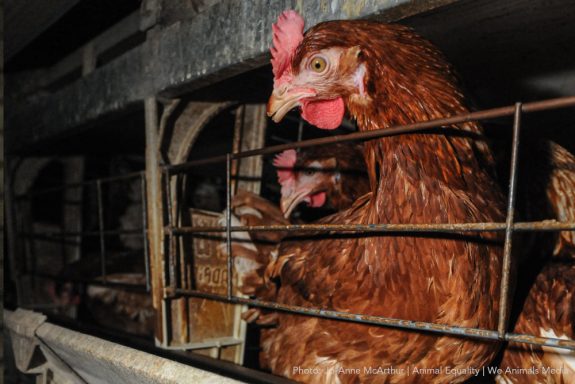In Canada, most egg-laying hens are kept in small wire cages, stacked on top of each other. These intensive confinement systems are incredibly cruel, and force hens to live in cramped, filthy conditions—often without enough room to spread their wings.
The wire cages are so small that each hen has space comparable to a sheet of paper.
Caging sensitive hens is considered one of the most cruel practices in the food industry. As a result, many consumers, companies, states, and countries are transitioning away from cages.
However, Canada has chosen to move to slightly larger cages, called “enriched” colonies or “enriched” battery cages, which are barely distinguishable from battery cages.
Can you spot the difference between battery cages & “enriched” battery cages?
Canada has some of the worst animal protection laws in the Western world. Unlike most other developed nations, we don’t have provincial or federal laws that regulate the treatment of animals on farms. Governments don’t oversee or inspect conditions on farms, either.
Instead, farmers makes their own rules. An industry-dominated group called the National Farm Animal Care Council (NFACC) develops “codes of practice” with voluntary standards for animals on farms. NFACC standards are window-dressing. They prioritize profits over animal well-being, and since they aren’t laws, they are largely unenforceable. NFACC standards still allow extreme animal suffering and confinement. For example, instead of forcing the egg industry to go cage-free, an NFACC code promised only to phase out battery cages for hens—but not until 2036. Instead of moving away from cages altogether, the egg industry is now transitioning to enriched battery cages—which are only slightly bigger than standard battery cages, and still condemn hens to miserable lives.
Grocers Are Also Falling Behind
Loblaw, Canada’s largest food retailer, announced in 2016 that it would stop selling eggs from hens confined in cages by 2025. However, the company is now saying that they won’t meet the deadline. Loblaw has no new timeline or plan to become 100% cage-free.
This is a huge concern, as Loblaw has enough market power to shift the Canadian egg industry away from cages, and improve the way hens are treated.
Despite record-setting profits, Loblaw is refusing to invest in fulfilling its promise to end cages.
Many companies around the world have made huge progress on going cage-free, and some regions have passed laws banning cages.
But Canadian grocers are lagging behind their peers in the US and Europe. It is time for Loblaw to take a stand against animal abuse, and keep its promise to go 100% cage-free.
Banner: Andrew Skowron | We Animals Media

